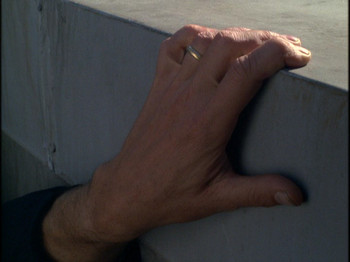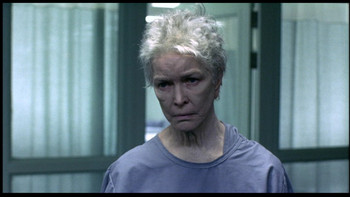Search Results for: Hot 250-586 Examcollection Vce - Useful Tips to help you pass Symantec 250-586 ☃ Open website ✔ www.pdfvce.com ️✔️ and search for 【 250-586 】 for free download 🌐250-586 Trustworthy Pdf
Five Minutes: The Truman Show
 There’s a maxim that says a movie teaches you how to watch it, but Peter Weir’s The Truman Show teaches you how to watch it the wrong way. And in its brazen audience cues, it hints that you should question your reaction to the film. This is a movie that was made for misunderstanding.
There’s a maxim that says a movie teaches you how to watch it, but Peter Weir’s The Truman Show teaches you how to watch it the wrong way. And in its brazen audience cues, it hints that you should question your reaction to the film. This is a movie that was made for misunderstanding.
Box Office Power Rankings: May 18-20, 2007
Most of us know that box-office gross is a largely meaningless number, and many people think that critics are worthless. In an effort to try to better measure a movie’s overall performance, Culture Snob here offers the first of its weekly Box Office Power Rankings.
Concert Recording: Martin Sexton at River Roots Live
 Pretty self-explanatory: Martin Sexton’s one-hour set at River Roots Live in Davenport, Iowa, on Friday, September 22, 2006.
Pretty self-explanatory: Martin Sexton’s one-hour set at River Roots Live in Davenport, Iowa, on Friday, September 22, 2006.
Devouring the Oscars: Best Animated Short Film
 I’ll start with an admonition: You have no reason not to have a horse in the short-film categories for the Oscars. These should be your favorite races, because they require relatively small investments of time. If you see and hate The Reader, you’ve lost 124 minutes of your life. If you see and hate Lavatory – Lovestory, you’re out 10 minutes. And the chances of you hating Lavatory – Lovestory are much smaller. Alas, each has about the same chance of winning the top prize in its category.
I’ll start with an admonition: You have no reason not to have a horse in the short-film categories for the Oscars. These should be your favorite races, because they require relatively small investments of time. If you see and hate The Reader, you’ve lost 124 minutes of your life. If you see and hate Lavatory – Lovestory, you’re out 10 minutes. And the chances of you hating Lavatory – Lovestory are much smaller. Alas, each has about the same chance of winning the top prize in its category.
Smells Like Teen Spirit: Five Minutes with Perfume
 The contradictions of director/co-writer/composer Tom Tykwer’s Perfume: The Story of a Murderer start in the title, with the onomatopoeic softness and ether of a single word paired with a morbid, blunt descriptive subtitle. Both components are drawn from the novel by Patrick Süskind, but the associations that pile up and pull at each other during the movie’s opening scenes are equally Tykwer’s, cinematic and lovingly ambiguous.
The contradictions of director/co-writer/composer Tom Tykwer’s Perfume: The Story of a Murderer start in the title, with the onomatopoeic softness and ether of a single word paired with a morbid, blunt descriptive subtitle. Both components are drawn from the novel by Patrick Süskind, but the associations that pile up and pull at each other during the movie’s opening scenes are equally Tykwer’s, cinematic and lovingly ambiguous.
Show of Commerce, Show of Art
For a series whose mystery and suspense are central to its allure, Lost’s ploy of eating up airtime minutes with background that is seemingly irrelevant to the central plot is positively brilliant. When you don’t need to move the story forward for a couple handfuls of your weekly forty-odd minutes, it makes it a lot easier to sustain the series over a longer period of time. And here’s the shocking thing: The backstory structure is an artistic triumph, a skeleton that gives the series its distinctive shape, depth, and resonance.
Falling Really in Love
Andrew W.K. is smart enough to understand not only irony but how it is used by artists as a defense mechanism against criticism. That’s more than you can say about most rock stars. How then, does one explain the music of Andrew W.K.?
The Stuff of Legend
You could not write this story any better, and if you tried to pass it off as fiction, you’d get buried in rejection slips. The tale of the 2004 Boston Red Sox – who won the World Series (and the team’s first championship since 1918) on October 27 – is among many other things a beautifully constructed narrative.
Open Hand
 There are dozens of close-ups of hands in Peter Weir’s Fearless, and mostly the extremities belong to Max Klein, the distant plane-crash survivor played by Jeff Bridges. What follows is not a comprehensive catalog but covers the majority of these shots. They are presented in the order in which they appear in the movie.
There are dozens of close-ups of hands in Peter Weir’s Fearless, and mostly the extremities belong to Max Klein, the distant plane-crash survivor played by Jeff Bridges. What follows is not a comprehensive catalog but covers the majority of these shots. They are presented in the order in which they appear in the movie.


